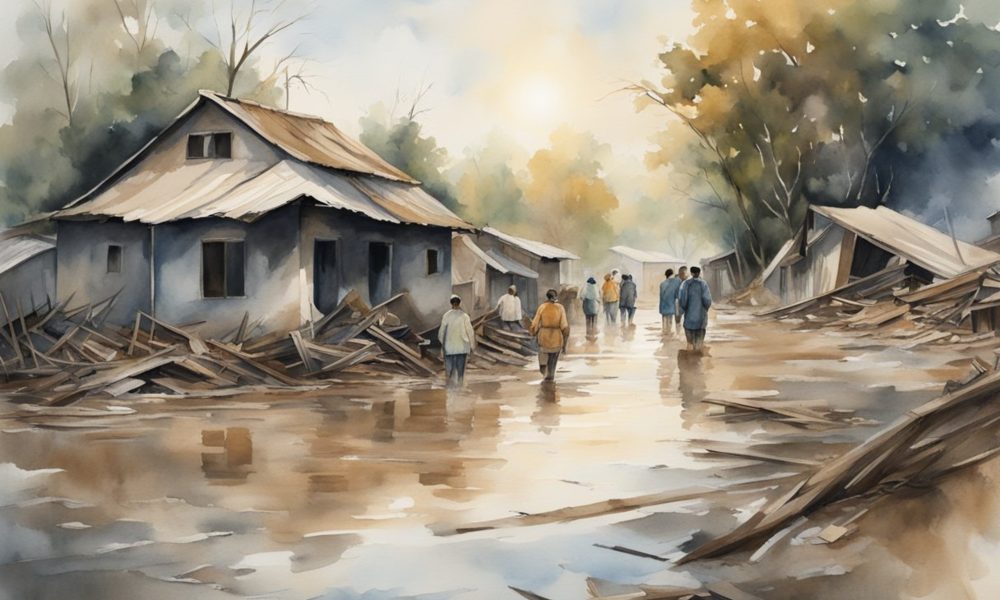Almost one week after terrible flash floods hit the area. The search for bodies continues as many are left without homes.
Here are the key points about this tragic situation:
- Over 300 people have died in the Baglan province
- Around 2,000 homes were destroyed by the powerful floods
- More casualties are expected as people are still missing
- The raging waters have wiped out entire villages
Why is this flooding so severe, and what will come next for the survivors? Read on to learn more.
“Everything Is Finished”
Caroline Davis is a reporter in Afghanistan’s Baglan province. She saw the widespread destruction firsthand. “The devastation stretches for miles,” she said. “You can see buildings destroyed, trees uprooted and swept downstream.”
Davis spoke with many villagers who lost everything in the floods. Some saw their homes completely flattened, while others had small, mud-filled rooms left standing.
One man, Nor Ahmed, thought he was going to die as waters rushed in. “When the wall fell, I was underwater,” he recalled. “I thought, ‘I have lost everything. We are all finished.'”
Incredibly, Nor survived by clinging to a tree. But his 10-year-old daughter Zula was swept away.
A Daring Creek Rescue
A few kilometres away, another man named Abdul Ahad spotted young Zula. The powerful current had carried her away, catching her in branches.
“My father said, ‘Don’t go, you’ll be taken by the flood!'” Ahad said. “But I felt I could save her.”
Risking his life, Ahad’s son pulled Zula from the raging creek. Though battered and muddy, she was alive. Zula is now recovering, but her family’s home is gone.
For the first time, Zula’s father, Nor, met the brave men who rescued his daughter. “If I gave them the whole world, it would not be equal to what they did,” he said, overcome with emotion.
Urgent Aid Required
Beyond tragic stories like Zula’s, survivors face other enormous challenges. Limited clean water raises fears about potential disease outbreaks.
Many villages were entirely cut off as roads were swept away. Some families still live in damaged homes because they have nowhere to go.
Abdul Malik lost ten members of his extended family of 18 in the floods. “People don’t know what to do next,” he told reporters. “So many are now displaced.”
The big question is how to respond going forward. The UN says this shows how vulnerable Afghanistan is to climate change impacts. They warn that extreme weather could strike again without preparation.
What do you think should be done to help these flood survivors recover? Leave your thoughts in the comments below.















